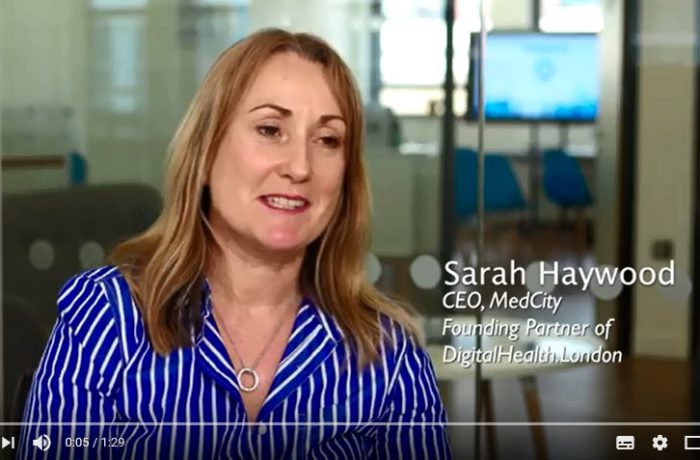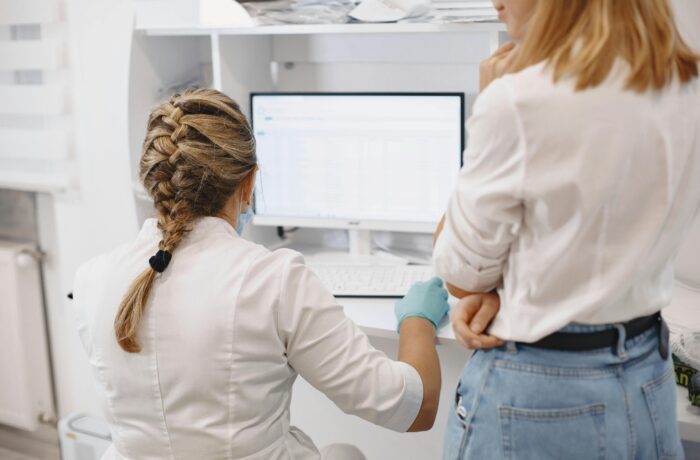Leeds Digital outpatients workshop highlights
Posted on
Asma Khalil, Consultant Obstetrician, St George’s Hospital; Kathy Scott, Deputy Director, Innovation and Research Strategy, NHS England; Tom Whicher, Founder, DrDoctor; Richard Stubbs, Chief Executive, Yorkshire and Humber AHSN.
NHS improvement’s medical director, Dr Vince Connolly, spoke about the potential for positive clinical outcomes where patients can monitor their own condition, for example in diabetes. He went on to talk about the role of innovation in a climate of limited resources and how social capital – great ideas, networks and determination – will help make digital transformation a success.
Chief Executive of the Yorkshire and Humber Academic Health Science Network, Richard Stubbs, gave a snapshot of the local data and what it tells us. He continued saying we should “start with people and how they want to interact.” He spoke of the need to turn culture on its head for radical change.
Simon Ainsworth, Outpatient Modernisation Programme Lead, Barnsley Hospital NHS Foundation Trust and Kenny Bloxham, Director, Healthcare Communications described how digitising touchpoints through the patient pathway has improved patient interaction and experience while reducing DNAs and saving 48 percent in postage cost
Dr Vince Connolly, Medical Director, NHS Improvement; Simon Ainsworth, Outpatient Modernisation Programme Lead, Barnsley Hospital NHS Foundation Trust
Mark Simpson, Project Support Officer, Leeds Community Healthcare Foundation Trust and Gill Smith, Business Development Director, Aire Logic, gave insight into the forms4health tool being piloted in the trust’s Irritable Bowel Syndrome pathway.
Industry insights
Following case studies companies presented short briefs to trusts on their digital offerings for outpatients services: ADI Healthcare, DrDoctor, HaMpton, Dynamic Health Systems, Health Navigator Healthy.io and Patients Know Best.
After presentations delegates participated in workshops to explore particular themes and share experience on challenging areas, including referrals; appointments; wayfinding; information gathering; remote consultation; and change management. The workshops involved group discussions centred on themes and problem statements in a bid to share expertise and identify solutions.
Closing the event Richard Stubbs thanked delegates and urged them to seek out their local Academic Health Science Network for support.
Visit Yorkshire and Humber Academic Health Science Network for more information.

 I
I

